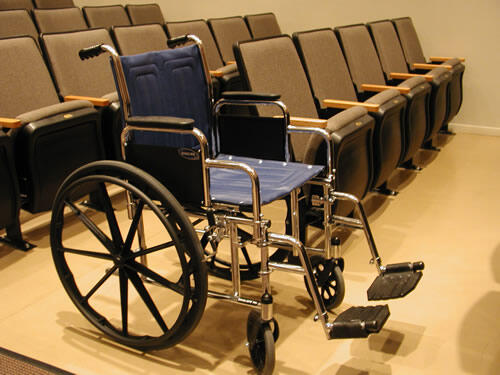These wheelchairs were made with 85% recycled waste.
3% of the inhabitants of the Republic of Rwanda suffer some kind of physical disability that prevents them from walking.
An old bicycle or a plastic chair bar can be recycled in many ways, but perhaps one of the most original and solidarity is that of turning it into a wheelchair for users of the Third World, as with the initiative “Kigali Chair Project “Roma and Josep Clara Mora.
This project began in 2012 in his studio in Barcelona, where they both work as industrial designers, when they met a colleague from Rwanda who explained the situation of this African republic-and their need wheelers chairs and put them in touch with local orthopedic center reference works in Kigali, the capital, and in the rehabilitation center Gatagara.
Around 3% of the population of this country-more than 220,000 people-suffer some kind of physical disability that prevents him from walking due to illness, accident or amputation of the 1994 genocide, according to the government.
The World Bank estimated at 618 euros the average annual salary of a Rwandan, while the price of a chair “basic” wheels do not usually drop below 100 euros, so that these instruments are not always accessible to the population.
The aim of the “Kigali Chair Project”, as explained Romany and Mora Efe was “building wheelchairs at an affordable cost, using indigenous material and recycling, and above all, teach Rwandans themselves to make them” develop its creativity in an easy and manual process.
Recycled waste
Thanks to this idea found a second life objects like old bicycle wheels, wooden parts of all kinds, fragments of wheelchairs and useless and even common in bars and “there is there everywhere” broken plastic seats.
Romany estimated 85% of the elements used were recycled waste, while the remainder came from the timber sector, “a pretty strong industry in Rwanda, thanks to which we get different pieces.”
The promoters of this company contacted the University of Architecture in Rwanda for their collaboration in project continuity but, not get financial aid, “it was impossible to continue pushing it back.”
Subsequently, the idea won the Catalonia Prize Ecodiseño 2015 in category C Strategy for “their awareness towards eco – design” reusing common elements readily available, as well as “the great social value” and its possible application in other countries in development .
Therefore, designers do not rule out the possibility of resuming activity in Rwanda or “wherever needed”, provided that the investment required to hold is achieved.











